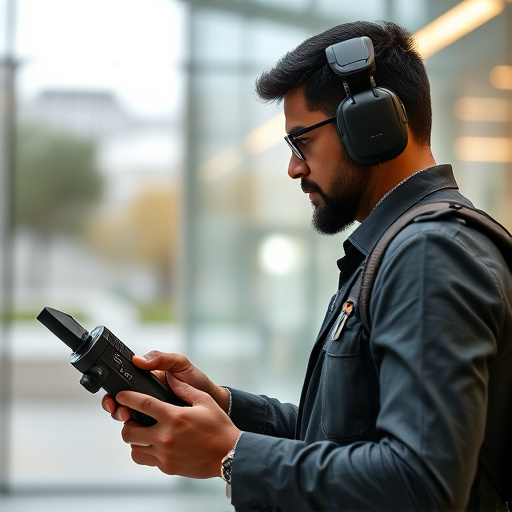The legality of self-defense products varies greatly by location, making it crucial to research local, state, and national laws before acquiring them. These laws categorize items based on danger levels and outline rules on permissible force, with a reasonableness standard. Staying informed ensures compliance, safety, and responsible self-protection, covering permit requirements, registration, and use guidelines. Understanding these legal aspects is essential for navigating the complex web of regulations around defense gear possession.
“In an era where personal safety is a paramount concern, understanding self-defense product laws is more crucial than ever. This comprehensive guide navigates the intricate web of legalities surrounding defense gear possession, equipping individuals with essential knowledge to make informed decisions. From grasping the fundamentals of self-defense product laws to deciphering state-specific variations, this article offers valuable insights. Key considerations for legal carrying and best practices ensure compliance, fostering a balanced approach to personal protection.”
- Self-Defense Product Laws: An Overview of Legal Frameworks
- Understanding the Legalities of Defense Gear Possession
- Key Considerations for Carrying Defense Tools Legally
- Deciphering Regulations: State-by-State Variations
- Best Practices for Ensuring Compliance with Defense Product Laws
Self-Defense Product Laws: An Overview of Legal Frameworks

The legalities of self-defense product possession vary greatly depending on your location. Understanding defense gear regulations is crucial when considering the acquisition and carrying of tools designed for personal safety. Each region has its own set of rules governing what types of self-defense products are permitted, who can possess them, and under what circumstances they can be used.
In terms of self-defense product laws, these regulations often categorize items based on their potential danger. Some common classifications include restrictions on certain weapons or tools considered too dangerous for civilian use, such as machine guns or explosive devices. Additionally, there may be specific rules around the type of force that can be employed, with many jurisdictions adopting a reasonableness standard, considering factors like threat level and necessity. It’s essential to research and comply with local, state, or national defense product laws and regulations to avoid legal repercussions and ensure your rights as a responsible citizen.
Understanding the Legalities of Defense Gear Possession

Understanding the Legalities of Defense Gear Possession
Before considering the possession of self-defense products, it’s crucial to grasp the legal aspects and regulations that govern them. Self-defense product laws vary significantly across jurisdictions, so staying informed about your state or local rules is essential. The legal considerations around carrying defense tools involve balancing personal safety with public safety concerns. Some areas may permit certain types of self-defense gear, such as pepper spray or stun guns, while others might restrict or ban them altogether.
Knowing these defenses product laws and regulations is key to ensuring compliance and avoiding legal repercussions. Understanding the specific requirements for obtaining permits, registering weapons, and adhering to use guidelines can help you responsibly protect yourself. Remember that carrying self-defense tools comes with responsibilities; being aware of your rights and obligations will enable you to make informed decisions regarding your safety and security.
Key Considerations for Carrying Defense Tools Legally

When considering the legality of carrying self-defense tools, understanding your region’s specific self-defense product laws is paramount. These regulations vary widely across borders, and what’s permitted in one place might be heavily restricted elsewhere. The legalities of defense gear often hinge on factors such as type (e.g., pepper spray, stun guns), quantity, and intended use. Staying informed about local defense product regulations ensures compliance and safety.
Several self-defense legal considerations come into play when carrying defensive tools. These include the purpose for which you intend to use them, your relationship to the location, and any potential triggers that might escalate situations. It’s crucial to know your rights and responsibilities under current defense product laws and regulations, as they can protect you from unintended consequences or false accusations.
Deciphering Regulations: State-by-State Variations

Understanding the legalities of self-defense product possession can be a complex task, as these regulations vary greatly from state to state in the U.S. What is considered legal in one state might be strictly prohibited in another. This complexity arises from differing interpretations and ongoing amendments to laws governing defense gear, such as stun guns, pepper spray, and tasers. Each state has its own set of rules regarding who can possess these tools, where they can be carried, and under what circumstances they can be used.
To navigate this labyrinthine web, it’s crucial for individuals to research the specific self-defense product laws in their respective states. This involves delving into local statutes and staying informed about any changes or updates. As a professional, it’s important to remember that these regulations are designed to balance individual rights with community safety, ensuring that citizens have access to lawful means of self-defense while preventing the misuse of powerful tools.
Best Practices for Ensuring Compliance with Defense Product Laws

Staying informed about and adhering to self-defense product laws is paramount when considering armed protection for yourself or your family. Each jurisdiction has its own set of regulations surrounding the possession, use, and transport of defense gear, including firearms, pepper spray, and stun guns. Before purchasing any self-defense tools, thoroughly research local, state, and federal laws to ensure compliance. This process involves understanding specific restrictions on weapon types, size, capacity, and permit requirements. Keep in mind that regulations can vary wildly between urban and rural areas, so consult official government resources for the most accurate information.
Best practices include maintaining up-to-date knowledge of any changes to defense product laws and regulations. This might involve subscribing to relevant legal newsletters or joining local gun owner associations that stay informed on legislative updates. Additionally, seeking guidance from a licensed firearms instructor or legal expert specializing in self-defense rights can offer invaluable insights tailored to your region. Always keep records of purchases, permits, and training certifications to demonstrate responsible ownership should law enforcement question you about your defense gear.






